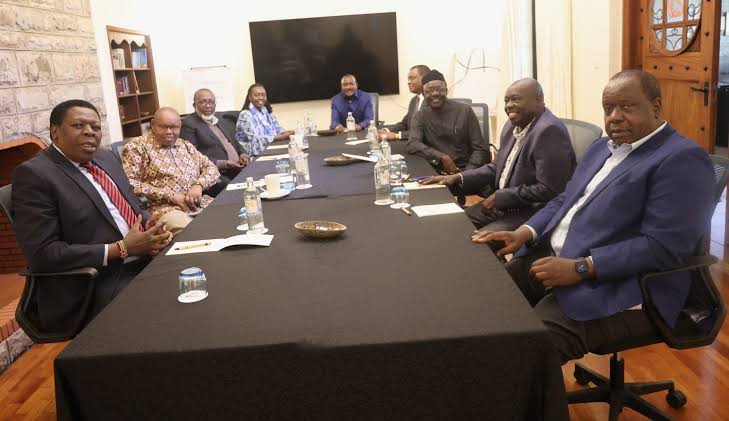By Clement Wasike
In the unending circus of Kenyan politics, survival hinges on an instinct honed by desperation, not principle. That is why if you look closely most of opposition politicking today is built on the art of scavenging. And leading the pack, with nostrils flared for the faintest whiff of misfortune, grievance, or fleeting public sentiment, is a march past an ever-shifting coterie of political opportunists.
A cynical, relentless, and often grotesque exploitation of anything that stirs the Kenyan pot, transforming every tremor ranging from genuine tragedy to manufactured outrage into a calculated bid for relevance and a siren song to the disaffected.
If you carefully examine the anatomy of our so-called political opposition, you will unearth the most despicable vultures, perpetually circling and desperately waiting for the inevitable moment when circumstance weakens the herd or wounds an opponent. Their beaks are not designed for creation, but for tearing scraps from the carcasses of events, real or imagined hoping that the ensuing scent—metaphorical or otherwise—would yield morsels to entice a hapless populace to their side. It is a dance most macabre but lately performed with increasing audacity.
Consider the rhythm of their recent manoeuvres…
When genuine hardships bite in society, the opposition does not arrive with solutions. The troop arrives with microphones. Their voices, dripping with dramatized empathy to amplify the suffering and weaponise it but not alleviate it. “See!” they cry, pointing accusatory fingers towards others, “See what they have done to you!” Their concern is as deep as a puddle after a light drizzle, evaporating the moment the cameras pan away, leaving the suffering masses no better off. These oppositionists feed on despair, hardly offering anything more than a thin gruel of blame.
Every “protest” opposition retinue aims to hijack a bandwagon of the gullible. Should youth rise against police brutality, the scavengers swiftly rebrand it as a rebellion against the “establishment”, an establishment they were insiders in until recently. The opposition catwalk dons the borrowed cloak of the oppressed hoping to attract mass sympathy while redirecting fury towards their nemesis.
For the so-called “alternative” leadership, when genuine crises are scarce, the resulting vacuum is filled with noise. A minor administrative hiccup? A “constitutional crisis!” A leader’s off-hand comment? A “grave insult to our community!” Funerals become political rallies. Every public utterance is calibrated for provocation and designed to generate outrage. The brigade is an assembly of masters of the self-created storms to which they offer “shelter” for the downpour they summon.
The scavenger’s playbook has ethnicity as its only bait. Any grievances, real or imagined, are inflated and broadcast not to foster dialogue, but to solidify a defensive bloc to remind “our people” that the others are out to drown them. In his failing game of wits, only he and his ilk stand as the bulwark.
The opposition carrion feast persists because, in the short term, it sometimes works. A populace reeling off from economic headwinds and constantly bombarded by simplistic narratives is susceptible to the primal call of the scavenger. The simplistic promise of tearing down the perceived source of pain, regardless of the lack of a coherent plan for what comes after is good music to the ears of a dupable lot. It offers the visceral thrill but a temporary balm for deeper wounds.
But Kenyans are not fools, nor are they mere carrion. The scavenger’s feast is ultimately dry and dusty. The relentless negativity, the absence of tangible policy alternatives beyond criticism and the constant stoking of division leave a bitter aftertaste that Kenyans can do without.
Kenya’s cortege of scavengers mistakes the momentary attention garnered by their ghoulish opportunism for genuine political capital. They confuse the circling of vultures for the gathering of eagles. True leadership requires building, healing, and offering a vision beyond the next carcass of misfortune. Until the opposition saprobes learn this, they will remain trapped in their cynical cycle, forever circling the tragedies and tensions of the nation, hoping to snatch enough scraps to survive another day, but incapable of ever truly leading it towards the light.
Theirs is the politics of the last gasp, not the next frontier. A nation hungry for progress deserves far more than political scavengers.
Wasike is a former banker turned social critic and political commentator



